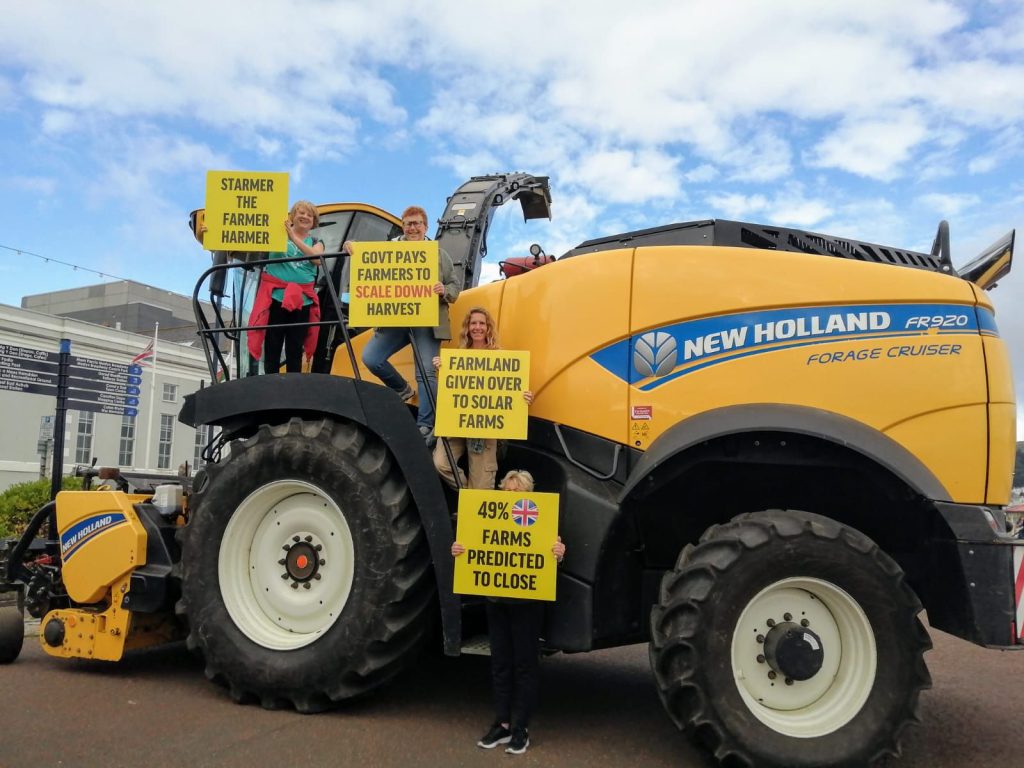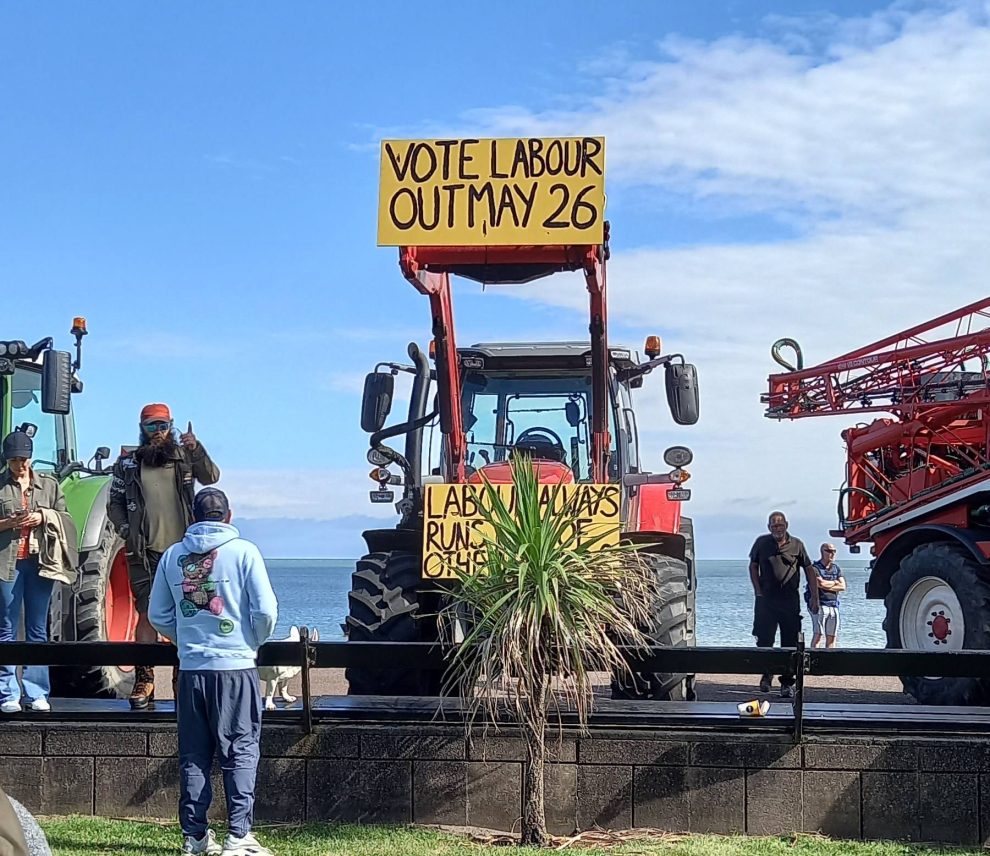HUNDREDS of farmers, fishermen, and hauliers took to the promenade in Llandudno on Sunday to protest against Welsh and UK government policies they say are driving rural industries to breaking point.
The protest coincided with Prime Minister Keir Starmer’s speech at the Welsh Labour Conference. Farm vehicles, tractors, banners, and even a fishing boat offshore carried messages criticising government policies on inheritance tax, livestock disease management, fishing regulations, and environmental restrictions.

Farmers expressed frustration with escalating costs linked to managing diseases like bovine tuberculosis (TB) and recent bluetongue restrictions, significantly impacting livestock trade. One protester described the distressing incident of having to cull nine heavily pregnant cows in a single day due to TB infection from badgers, calling for urgent government action to cull or vaccinate badgers.
Donna Maria, another protester, voiced concerns about the high cost of mandatory sheep vaccinations and the steep expenses farmers face transporting livestock across the Wales-England border due to differing regulations. Each sheep vaccination reportedly costs farmers £70, placing further financial strain on already struggling farms.
Alan Hughes, a farmer from the Shropshire-Powys border, highlighted broader economic pressures: “We are forced into taking second jobs to subsidise farming. Supermarket prices keep rising, yet our income falls due to EU trade deal impacts. Beef prices dropped £1 a kilo last month alone—that’s a sixth of its value.”
Protest organiser Liam Payne from Swansea emphasised longstanding grievances: “Sixteen months ago, we protested at the Senedd over TB testing, NVZ zones, and now we have additional burdens with inheritance tax and bluetongue restrictions.” He warned bluetongue measures would severely limit farmers’ ability to import livestock, risking genetic diversity and farm viability.
Fisheries representatives joined the protest, highlighting concerns about government fishing quotas, regulations, and policies affecting their livelihoods. Banners carried slogans such as “No Farmers, No Food, No Future,” “Our Shores, Our Fish, Our Heritage,” and “Shellfish ‘Sole’less Starmer,” underscoring the perception that Labour policies fail to support rural communities effectively.
Participants stressed their actions were not merely political but an existential fight to preserve Welsh agriculture, fishing traditions, and protect their families’ futures. The protest is the latest in a series targeting political conferences and government leaders, highlighting the urgency felt within rural Welsh communities.













